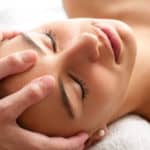Feng shui is the ancient Chinese art of arranging and placing objects in our environment. This thoughtful spatial layout facilitates optimal circulation of energy (Qi). Qi circulates throughout our body and imbalance occurs when that Qi becomes excessive, stagnant or deficient. The Asian worldview perceives our bodies as a microcosm of the universe, and thus, the same principles apply. It is this reasoning that forms the basis of feng shui, which acts to correct environmental imbalances due to overactive, stuck or insufficient Qi flow.
A majority of feng shui principles are extensions of common sense. Many people are sensitive to the flow of Qi outside of their bodies, and intuition guides them to favor areas with smooth and easy Qi flow. We have all experienced the difference between entering a room that feels awkward vs. entering a room that feels good. It is astonishing how some simple feng shui guidelines can transform the energy of a space, and result in positive implications for all of its occupants.
Following are seven feng shui tips to optimize the energetics of a massage practice:
- Entrance Area: The space where someone first enters your practice is considered to be an auspicious place. Because one might pause here upon entering or leaving, they are affected by the Qi that flows through it. Entrance halls with no windows or doors, or enclosed in some way, can cause the Qi to stagnate. Strategically placed mirrors, a small water fountain or a ceiling fan can create the movement necessary to eliminate energetic stagnation.
- Sharp Angles: According to Anne Mansfield, executive director of the International Feng Shui Guild based in Beaverton, Oregon, “In a wellness practice, you want to have soft edges, nothing sharp or pointed because you are dealing with people who are vulnerable and need to be treated gently.” Solutions to soften sharp or jutting angles include soft and comfortable seating, gentle lighting and plants or statues in front of those angles.
- Water Fountain: This brings in the element of water and creates energetic movement. A water fountain in the actual treatment room may create too much activity to ensure a relaxing experience for the client. It can also influence activity in the bladder, and may interrupt a session with a trip or two to the restroom. Since the southeast corner is considered to be the “money area,” placement of a fountain here is said to bring in good luck and financial prosperity.
- Ceiling Beams: Overhead beams generate negative energy that is directed downward. A beam over your massage recipient will place unseen pressure on that person. If a ceiling beam in the treatment room is unavoidable, properly hung bamboo flutes on the beam can lift that sense of oppression.
- Massage Table Placement: Massage therapists typically work in small rooms. As such, there may not be many choices of how to position the massage table. Two standards of feng shui include preventing the feet or the head from being directly in front of the door. The client (when supine) should be able to see the door. If a person can’t see someone entering the room it may startle them, which interrupts relaxation. The worst position for a massage table is directly in front of the door with the client’s feet facing the door. This is called the “coffin position” because in ancient China the dead were laid with their feet toward the door for easier access to heaven. The “coffin position” drains away all of that individual’s good luck and energy.
- Wall Color: While red is a desired color to bring fame and benefit a business’s reputation, avoid its use in the treatment room. The color red is energizing and can therefore prohibit a restful experience. Soft muted colors that appear in nature are the best bets to foster relaxation and healing.
- Rocks: A bowl of smooth polished river rocks on the floor, under the massage table, is a simple way to encourage energetic grounding. Stones are yin in nature, and therefore connect us to the earth and bring us stability. When combined with the yang activity of massage, the rocks bring balance to a session and ground both the practitioner and the recipient.
If these seven tips don’t initiate the positive changes you may be seeking, think about hiring a professional feng shui consultant. These individuals have been trained in the complexities of environmental energy flow and are being increasingly commissioned to design buildings and remedy unsuccessful business locations. While bringing a feng shui expert into your practice may seem like a leap of faith, that leap can pay off both in your personal life and in your business life.















